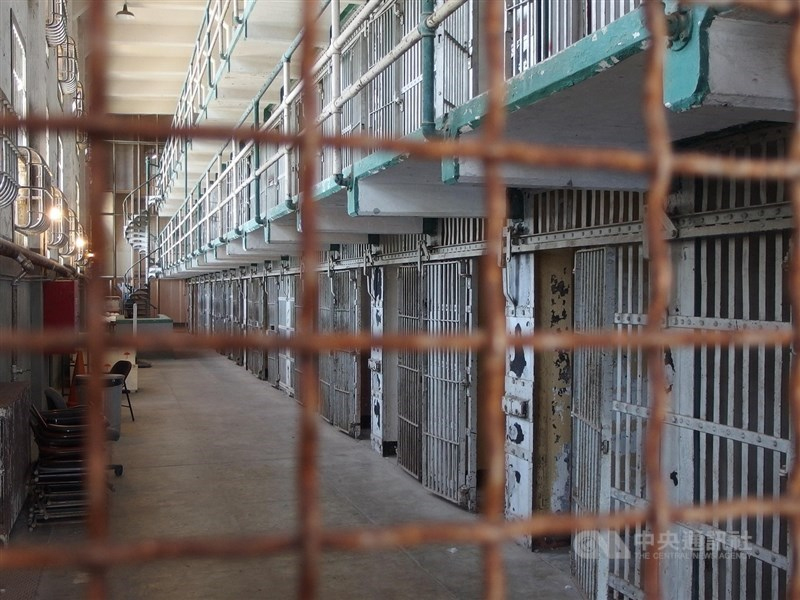Taiwan’s prison system is grappling with an unprecedented challenge — chronic overcrowding driven largely by a sharp rise in fraud-related convictions. According to Agency of Corrections Director Chou Hui-huang (周輝煌), speaking at a legislative committee session on June 23, 2025, the nation’s prison population has surpassed its authorized limit for the first time in recent years, prompting urgent measures to build, expand, and redesign facilities across the country.
⚡️ Overcrowding at a Glance
As of June 22, 2025, the total number of inmates in Taiwan’s prisons stood at 60,945, exceeding the official authorized capacity of 60,552. The crisis is most acute at Taoyuan Women’s Prison, where an official capacity of 1,027 has been stretched to house 1,499 inmates — almost 46% over its limit.
This sharp rise is primarily attributed to the increasing number of convictions for fraud-related crimes, making fraud the top offense category nationwide. The trend has surged over the past two years, highlighting a shift in the nature of crimes impacting Taiwan’s justice and corrections landscape.
🏗️ Government Response: New Facilities and Smart Prisons
In a bid to alleviate the crisis, the Ministry of Justice and the Agency of Corrections have announced ambitious expansion projects:
- Bade Minimum‑Security Prison (Taoyuan): New construction is anticipated to add significant bed space.
- Changhua Detention Center: Will expand facilities to accommodate rising inmate numbers.
- Additional Expansions: Taoyuan Women’s Prison, Taipei Detention Center, and Taipei Women’s Detention Center are slated for renovations and expansions.
These combined efforts are expected to create an estimated 3,459 new spaces for inmates across the system, providing long‑overdue relief for overcrowded facilities.
🧱 “Smart Prison” Challenges: Technical and Infrastructure Defects
While expansion aims to solve long‑standing overcrowding issues, lawmakers have criticized delays and deficiencies in implementing the “Smart Prison” initiative. According to a National Audit Office (NAO) review:
- The Bade Minimum‑Security Prison Smart Facility failed preliminary inspection due to 2,279 defects between Jan–Mar 2023.
- As of the end of March 2025, 30 issues remained unresolved, ranging from connectivity failures and architectural flaws (such as uneven walls) to electrical defects.
People’s Party legislator Huang Kuo‑chang (黃國昌) pressed the Agency of Corrections to rectify these deficiencies within six weeks and provide a formal progress report to the legislative committee.
⚖️ Implications and Context
The rise in fraud‑based convictions mirrors global trends, highlighting the growing prevalence of digital crimes. In Taiwan, fraud rings have become a significant strain on the prison and judicial system, suggesting a shift from traditional offenses toward highly organized, transnational financial crimes.
Moreover, this crisis exposes deeper systemic issues within Taiwan’s corrections infrastructure — aging facilities, inadequate space, and delayed technological upgrades. The government’s approach aims not only to expand physical capacity but also to modernize its approach to rehabilitation and prisoner management.
🔍 What’s Next?
With growing public scrutiny and legislative pressure, the success of these efforts will rest on:
✅ Accelerating infrastructure expansions and renovations
✅ Expediting Smart Prison installations
✅ Improving early warning and inmate distribution protocols
✅ Enhancing digital fraud prevention and judicial efficiency
✨ Final Thoughts
Taiwan’s overcrowding crisis is more than a logistical challenge — it’s a warning sign about evolving crime patterns and the urgent need for systemic reforms. The efforts underway may redefine the role of its corrections institutions and set a new standard for addressing the unique pressures posed by digital‑age offenses.
❓ FAQs
Why are Taiwan’s prisons overcrowded?
The surge is primarily due to an increase in fraud-related convictions, making fraud the leading offense among inmates.
Which prison is the most overcrowded?
Taoyuan Women’s Prison, which has an official capacity of 1,027 inmates, is housing approximately 1,499 inmates, making it the most overcrowded facility.
What is being done to reduce prison overcrowding?
The Ministry of Justice and the Agency of Corrections have announced expansions and renovations for facilities across Taiwan, including new construction at Bade and Changhua prisons, which will add roughly 3,459 spaces.
What is a ‘Smart Prison’?
A Smart Prison uses advanced technology to optimize security, inmate monitoring, and operational efficiency. However, delays and deficiencies have posed setbacks for its implementation in Taiwan.
Will the prison expansions solve the problem?
Expansions and renovations are expected to help alleviate overcrowding, but long‑term solutions also require addressing rising fraud-related crimes and systemic judicial reforms.


